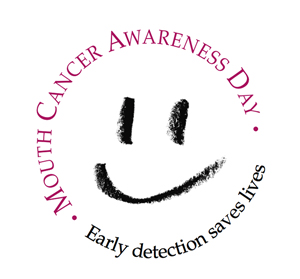Cancer is the abnormal (malignant) growth of body cells. Mouth Cancer is the name given to the group of cancers that affect any part of the mouth including the insides of the cheeks, palate (roof of the mouth), gums, tongue, tonsil, throat, salivary glands, nose and lips.
Mouth Cancer
Risk Factors
Anyone can be affected by mouth cancer. Traditionally, it was believed to be most common in people over 40, affecting men more often than women. This was due to the significant link between tobacco and excess alcohol with mouth cancer. Recently, a strong link has also been identified with the human papilloma virus (HPV), which can affect younger people.
These factors will increase your risk of mouth cancer:
- Smoking, chewing tobacco, cigars, pipes or betal leaf
- Drinking alcohol to excess
- The human papilloma virus (HPV)
- Some conditions such as leukoplakia and erythroplakia
- Overexposure to sunlight on the lips
- Any previous experiences of head and neck cancer
Signs and Symptoms
Oral cancer can manifest itself in different ways and on any part of the mouth. The first sign is usually a sore or ulcer (sometimes painful) that does not heal or go away. If you notice any of these signs, firstly, don’t panic. Most of the signs of mouth cancer can also be due to other, often less serious, conditions so it is best to have a dental exam if you have any suspicions.
Although you may not always be aware of it, the dentist will check for signs of mouth cancer at every appointment. We use a small mirror to examine the inside of your mouth and tongue. The dentist is able to see parts of your mouth that you may not be able to easily see yourself and will inform you if any signs of cancer are detected.
Remember, it is very important to make an appointment with us if you have any mouth ulcers that do not heal within three weeks.
Some common signs of mouth cancer include:
- White or red patches, uneven texture or breaks in the skin
- A lump anywhere in or around the mouth or throat
- Thickening or hardening of the cheek or tongue
- Unusual bleeding
- Numbness
- Pain when chewing or swallowing
- Loose teeth or dentures no longer fitting comfortably
- Persistent sore throat or hoarseness
- Persistent nosebleeds and a stuffy nose
- Earaches
- Unusual patches of skin on the lips
Tips for Keeping Healthy
- Visit us regularly, especially if you drink or smoke, as this can help us detect any cancer in its early stages
- Be aware of any changes in your mouth and see the dentist if you notice any ulcer and/or red or white patches that do not heal within three weeks
- Protect your lips from the sun using sun cream or protective lip balm
- Limit or eliminate alcohol consumption and tobacco use
- Maintain a healthy diet rich in vitamins

Patient Advice topics:
Any questions?
We are experienced and sympathetic in dealing with each patient’s anxieties and pride ourselves on developing a personal relationship with our patients.
